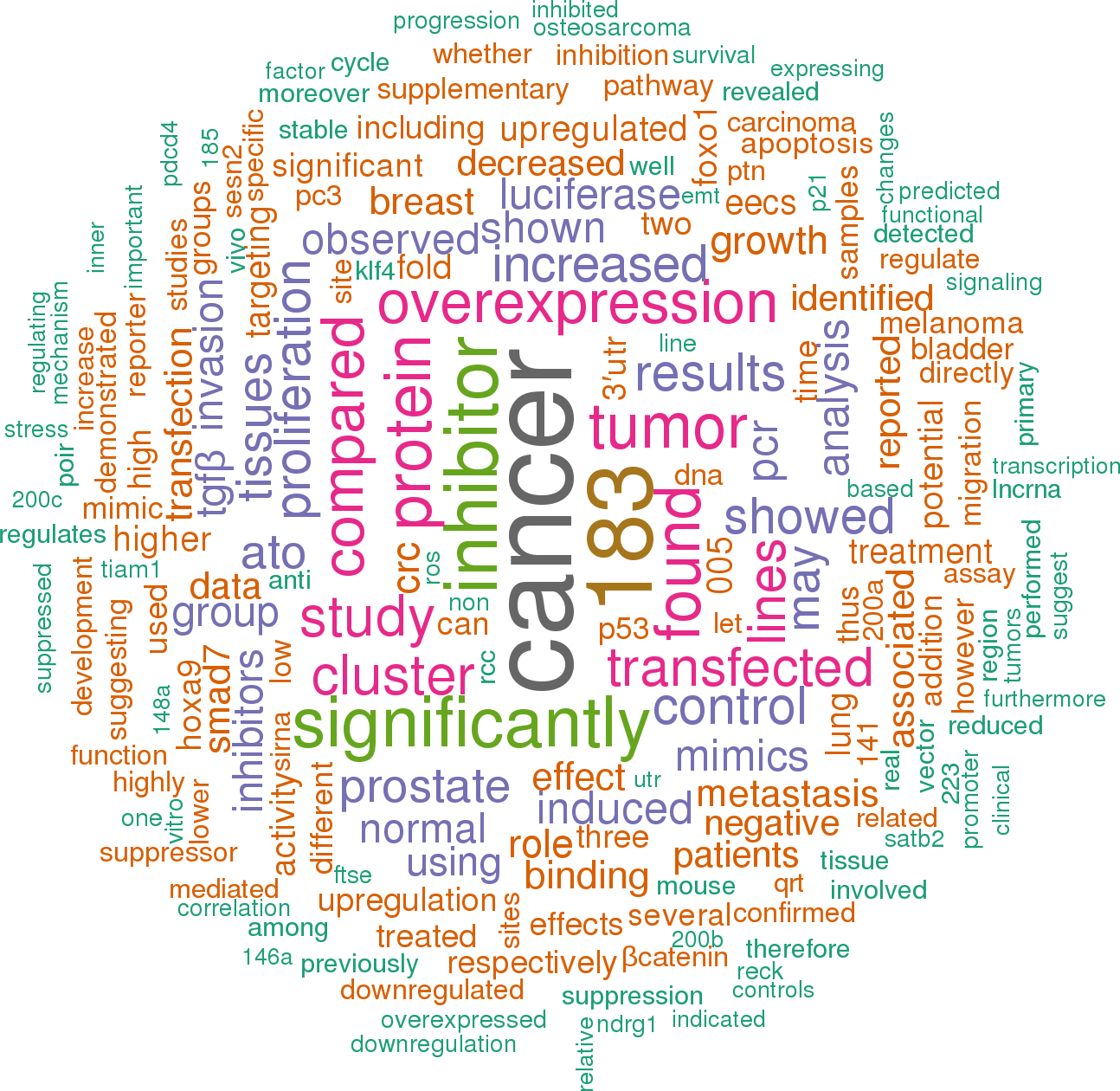Accession
MI0000272
Symbol
HGNC:
MIR182
Description
Homo sapiens
hsa-mir-182 precursor miRNA mir-182
Gene
family?
family?
RF00702;
mir-182
Summary
Caution, this is an AI generated summary based on literature. This may have errors. ?
MIR182 is a microRNA implicated in various human cancers, where it often acts as an oncogene [PMC5308578]. In a study involving a reduced model with four predictors, MIR182 was one of the factors considered, alongside Age, miR21, and β-CTx [PMC9713074]. Overexpression of MIR182 has been observed to inhibit apoptosis in oral squamous cell carcinoma (OSCC) cells and conversely, its inhibition was shown to promote apoptosis in Tca8113 OSCC cells [PMC5308578]. MIR182 is not only upregulated in OSCC but also in several other cancers including breast cancer, where it is elevated both in tumor tissues and the serum of patients [PMC5308578]. Despite some controversy regarding its role in lung cancer, increased levels of MIR182 have been detected in lung cancer cells and tissues as well [PMC5308578'>PMC5308578]. Furthermore, upregulation of MIR182 has been documented across various other cancers such as melanoma, glioma tumors, ovarian cancer, colorectal cancer, and prostate cancer; this upregulation contributes to tumor cell survival and metastatic behaviors [PMC5308578]. The oncogenic function of MIR182 has been linked to its regulation of RASA1 and SPRED1 genes that are involved with Ras activation pathways within OSCC [PMC5308578].
Literature search

290 open access papers mention hsa-mir-182
(2366 sentences)
(2366 sentences)
Sequence
86555
reads,
272
reads per million, 146 experiments
gagcugcuugccuccccccguuUUUGGCAAUGGUAGAACUCACACUggugagguaacaggauccggUGGUUCUAGACUUGCCAACUAuggggcgaggacucagccggcac
..((((((.(((((.((((((..(((((((...((((((...((((((..............))))))))))))...)))))))..)))))).)))).)..)).))))..
..((((((.(((((.((((((..(((((((...((((((...((((((..............))))))))))))...)))))))..)))))).)))).)..)).))))..
Structure
ga - -u - c uU UGG UCA ugaggu gcug cu g ccuc ccccgu UUGGCAA UAGAAC CACUgg a |||| || | |||| |||||| ||||||| |||||| |||||| cggc ga c ggag gggguA AACCGUU AUCUUG GUggcc a ca c cu a c UC CAG --- uaggac
Annotation confidence
High
Do you think this miRNA is real?
Genome context
chr7: 129770383-129770492 [-]
Clustered miRNAs
2 other miRNAs are < 10 kb from hsa-mir-182
| Name | Accession | Chromosome | Start | End | Strand | Confidence |
|---|
Disease association
hsa-mir-182 is associated with one or more human diseases in the Human microRNA Disease Database
| Disease | Description | Category | PubMed ID |
|---|
Mature hsa-miR-182-5p
| Accession | MIMAT0000259 |
| Description | Homo sapiens hsa-miR-182-5p mature miRNA |
| Sequence | 23 - UUUGGCAAUGGUAGAACUCACACU - 46 |
| Evidence |
experimental
cloned [2-3] |
| Database links |



|
| Predicted targets |



|
Mature hsa-miR-182-3p
| Accession | MIMAT0000260 |
| Description | Homo sapiens hsa-miR-182-3p mature miRNA |
| Sequence | 67 - UGGUUCUAGACUUGCCAACUA - 87 |
| Evidence | not_experimental |
References
|



